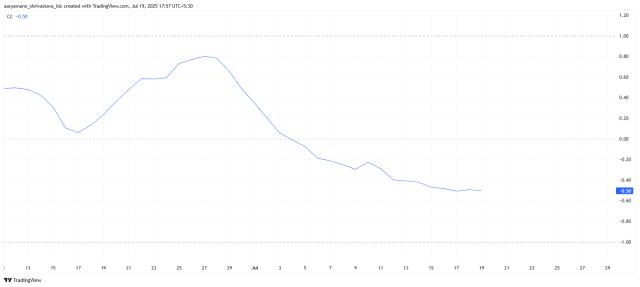Author: Stanford HAI (Stanford Institute for Human-Centered Artificial Intelligence)
Translated by: Felix, PANews
Stanford HAI recently released the 456-page "AI Index Report 2025". Here are some key points about AI trends:
1. Artificial Intelligence Has Become Much More Powerful Than Imagined
In new benchmark tests MMMU, GPQA, and SWE-bench, AI performance has significantly improved: scores increased by 18.8%, 48.9%, and 67.3% respectively. Beyond benchmarks, AI systems have made major advances in generating high-quality videos, with large language models (LLMs) even surpassing humans in time-limited programming tasks in some cases.
Note:
MMMU is a carefully designed new benchmark specifically for college-level multidisciplinary multimodal understanding and reasoning, aimed at evaluating foundational models' expert-level multimodal understanding across diverse tasks.
GPQA is a challenging dataset containing 448 high-quality, extremely difficult multiple-choice questions written by experts from different fields. Experts with or pursuing a doctorate in the respective fields have an accuracy of only 65%, while highly skilled non-expert verifiers, despite spending over 30 minutes and having unrestricted internet access, only achieve 34% accuracy.
SWE-bench is a benchmark for evaluating large language models' performance on real-world software issues collected from GitHub.
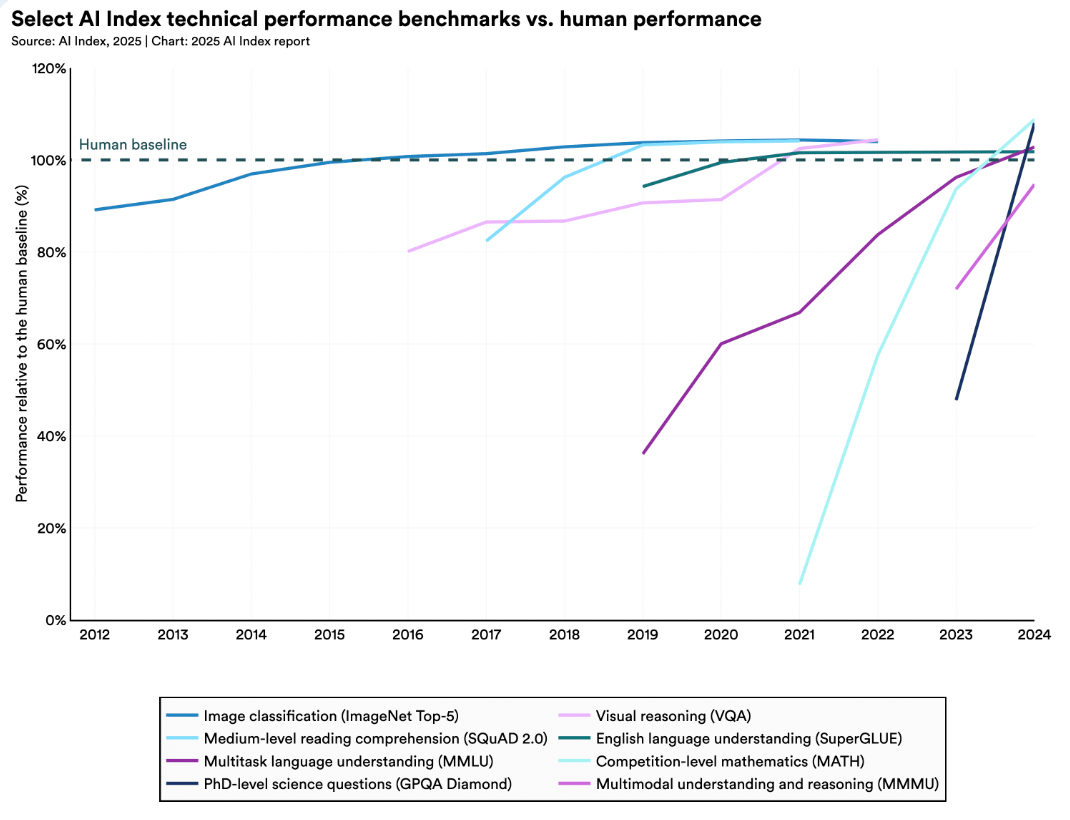
2. AI Is More Efficient, Accessible, and Cost-Effective
Smaller AI models with fewer parameters are increasingly capable: in just two years, the number of parameters has reduced by about 100 times, yet their scores on the Massive Multitask Language Understanding (MMLU) test still exceed 60%.
The gap between open-source and closed-source models is also narrowing, with performance differences dropping from 8% to just 1.7% in some benchmark tests.
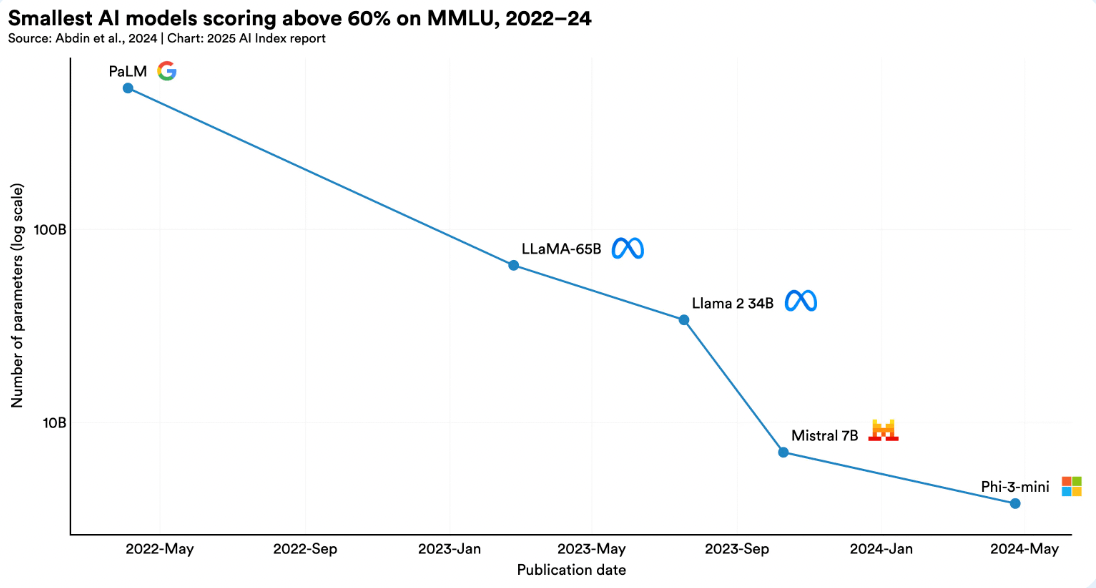
Moreover, from November 2022 to October 2024, the reasoning cost of systems reaching GPT-3.5 level has dropped by over 280 times. At the hardware level, costs decrease by 30% annually, while energy efficiency improves by 40% each year.
The threshold for advanced AI is rapidly lowering. Not to mention the development of sparse models like DeepSeek, where under the Mixture of Experts (MoE) structure, only relevant parameters are activated to respond to user queries, making the entire process more efficient.
Indeed, as smaller but more capable AI models continue to emerge, AI model training requirements have decreased, and cost-effective distributed training is expected to become mainstream in the next decade. Some top projects are currently conducting research based on different theoretical frameworks.
3. AI Is Increasingly Integrated into Daily Life
In 2023, the FDA approved 223 AI-assisted medical devices, compared to just 6 in 2015. On the roads, autonomous vehicles are no longer experimental: Waymo, one of the largest operators in the US, provides over 150,000 autonomous driving services weekly, while Baidu's Apollo Go driverless taxi fleet is now operating in multiple Chinese cities.
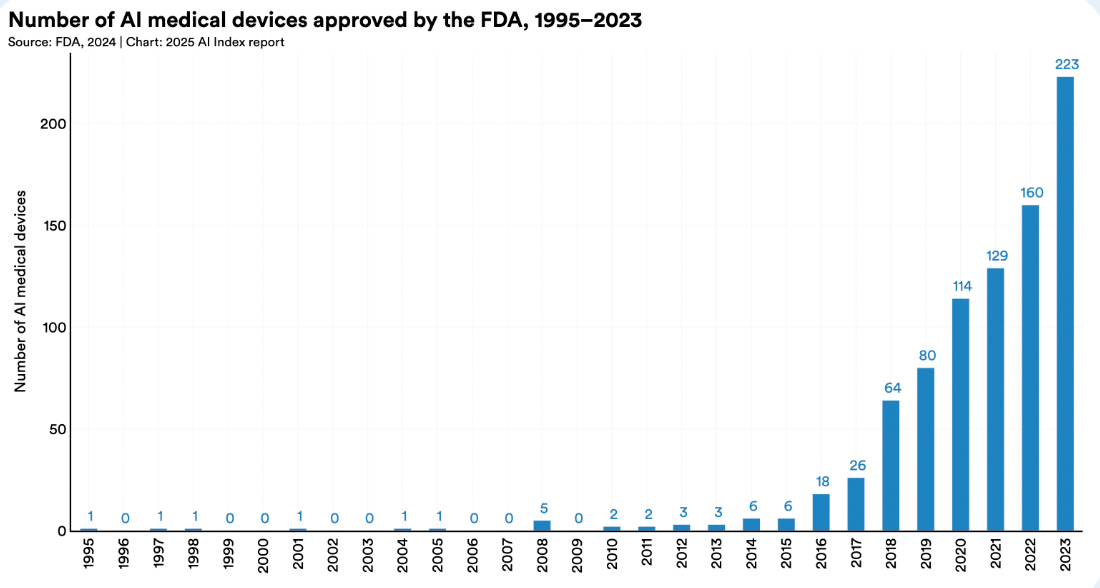
4. Corporate Investment in AI Significantly Increases, Driving Record Investments and Applications
AI adoption in business is accelerating: in 2024, 78% of organizations are using AI, compared to 55% the previous year. Simultaneously, increasing research confirms that AI can enhance productivity and help bridge skill gaps across the workforce.
In fact, as AI drives exponential growth in customer expectations, existing solutions can become obsolete overnight, giving existing businesses fewer opportunities to adapt, with product market fit collapses becoming more frequent.
5. Despite Rising Global AI Optimism, Asians Are More Optimistic About AI
In countries like China (83%), Indonesia (80%), and Thailand (77%), most people believe AI products and services offer more benefits than drawbacks. In contrast, in Canada (40%), the United States (39%), and the Netherlands (36%), optimism remains much lower.
However, this attitude is changing: since 2022, optimism has significantly increased in some previously skeptical countries, including Germany (10% increase), France (10%), Canada (8%), the United Kingdom (8%), and the United States (4%).
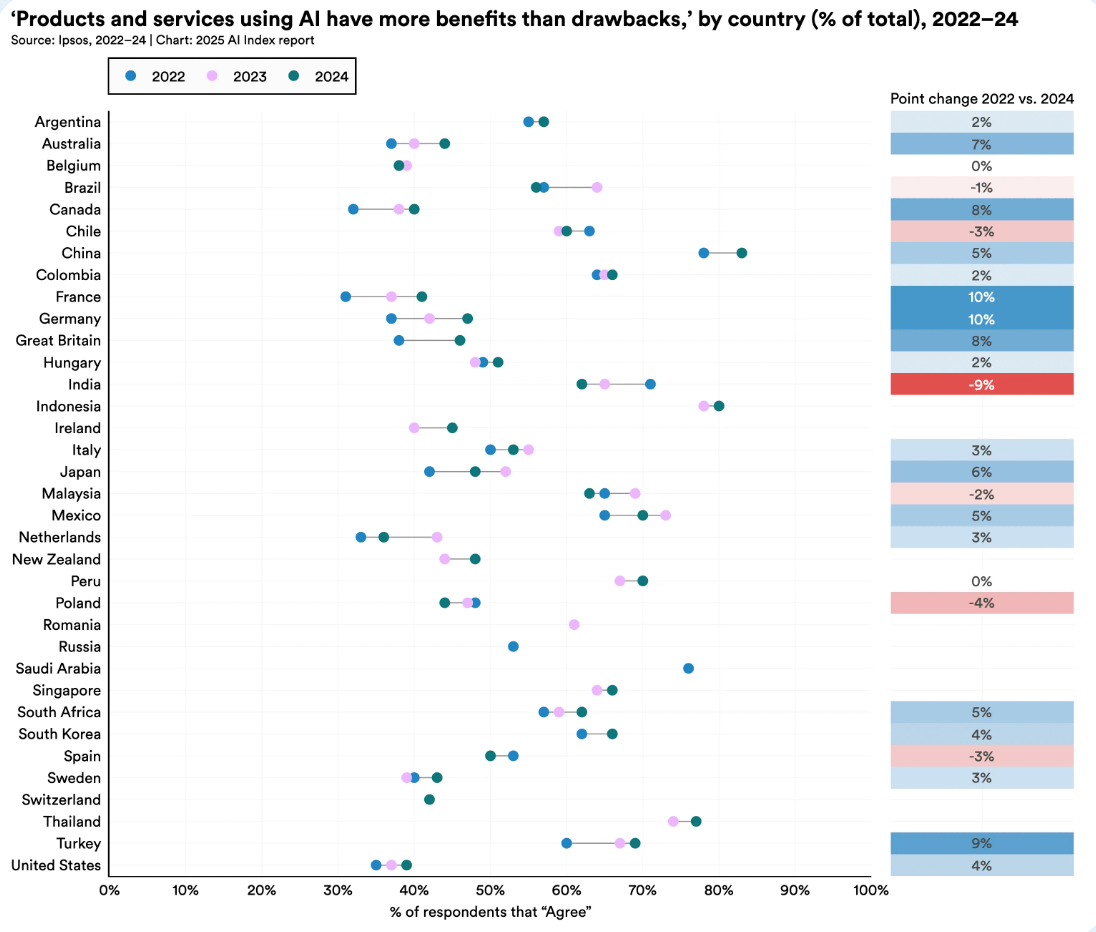
6. AI's Influence in Scientific Research Is Growing, Becoming a Key Driver of Scientific Progress
AI's increasing importance is reflected in major scientific awards: two Nobel Prizes were awarded for contributions in deep learning (physics) and its application to protein folding (chemistry), while the Turing Award recognized pioneering contributions in reinforcement learning.
Clearly, AI is developing at an exponential and unexpected speed, which is significant for most people. Therefore, AI safety has become increasingly important. While AI makes forgery easier, cryptography makes forgery more difficult. We look forward to crypto projects that can leverage blockchain's native attributes of verifiability and transparency to build practical solutions in this field.






